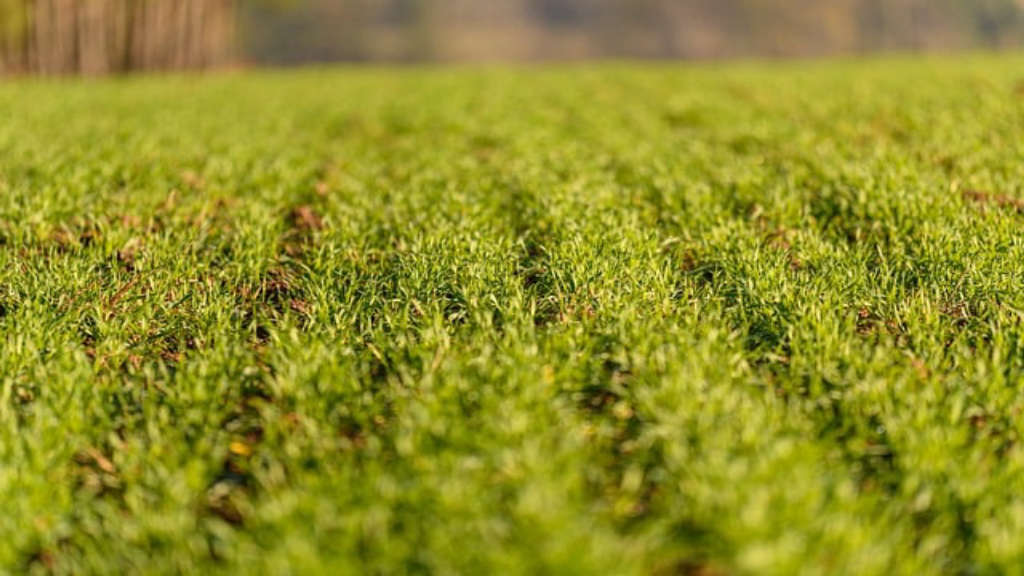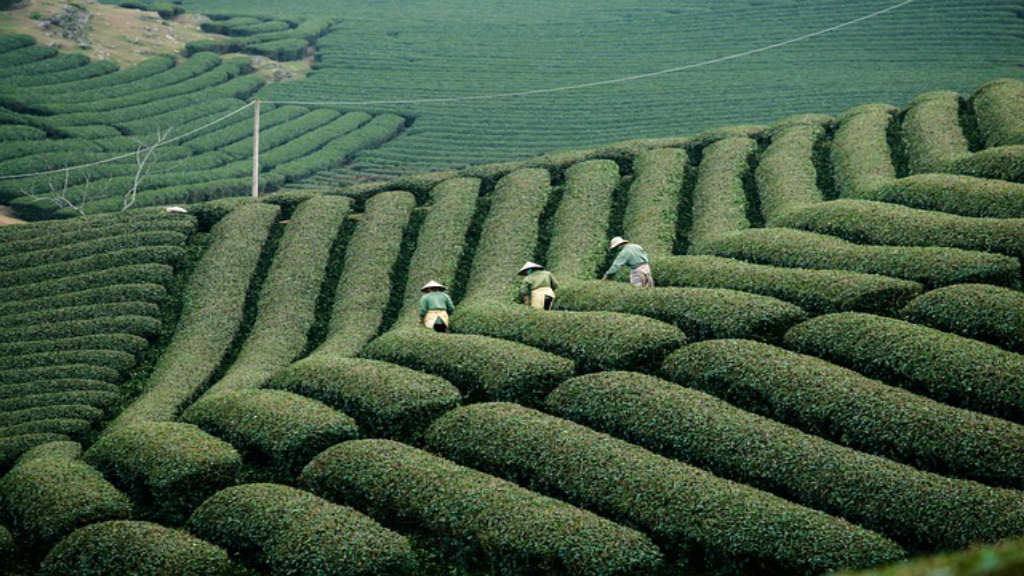As we stand on the brink of a new agricultural revolution, the integration of technology into farming has opened up exciting possibilities. Smart farming emerges as a beacon of hope for sustainable agriculture. This modern approach not only maximizes crop yields but also addresses pressing environmental concerns. By employing advanced techniques, farmers can optimize resources and reduce waste, contributing to a healthier planet while ensuring food security for future generations.
Main Points
- The role of technology in enhancing agricultural productivity.
- Benefits of smart farming practices for sustainability.
- How data analytics can help minimize environmental impact.
- Technological innovations transforming traditional farming methods.

Innovative Technologies Revolutionizing Agricultural Practices for Sustainable Growth
The agricultural sector is undergoing a remarkable transformation, driven by innovative technologies aimed at achieving sustainable growth. As food demand intensifies due to a rapidly growing global population, it is essential to employ modern solutions to enhance productivity while minimizing environmental impact. This article explores some key technologies that are reshaping agricultural practices.
Precision Agriculture: Tailored Solutions for Farmers
Precision agriculture refers to the use of data analytics and technology to make farming practices more efficient. This approach allows farmers to monitor field variability in crops, soils, and weather conditions. The benefits include:
- Resource Management: Farmers can optimize the use of water, fertilizers, and pesticides based on specific needs, reducing waste and costs.
- Yield Improvement: By understanding when and where to apply inputs, farmers can significantly increase their crop yields.
- Environmental Protection: The targeted application of resources minimizes runoff and lowers the impact on surrounding ecosystems.
As a result, precision agriculture not only enhances productivity but also supports the principles of sustainable farming.
Biotechnology: Breeding the Future
Another groundbreaking innovation is biotechnology. Genetic engineering allows for the development of crops that are more resistant to pests, diseases, and environmental stresses. Some key advancements in this area include:
- Enhanced Nutritional Content: Biofortified crops can provide essential nutrients to populations in need.
- Reduced Chemical Dependency: Genetically modified organisms (GMOs) can decrease the need for chemical pesticides and herbicides.
- Climate Resilience: Crops engineered to withstand extreme weather conditions can safeguard food supplies.
This technology raises important ethical and environmental questions, yet it also offers solutions to combat hunger and malnutrition.
Drones and Mapping Technologies: A Bird’s Eye View
Drones have emerged as powerful tools for modern agriculture. By capturing aerial imagery, they provide valuable insights into crop health and land conditions. The advantages of using drones include:
- Real-Time Data Collection: Farmers can monitor their fields more frequently and accurately, enabling timely interventions.
- Cost-Effective Surveys: Drones reduce the need for extensive manual labor and lower surveying costs.
- Mapping for Expansion: Detailed mapping helps in identifying areas for future development or investment.
The strategic deployment of drones can transform how farmers manage their land, pushing the boundaries of innovation in agriculture.
Conclusion: Embracing Change for a Sustainable Future
In conclusion, innovative technologies such as precision agriculture, biotechnology, and drones are revolutionizing agricultural practices. These advancements not only promise to boost productivity but also align closely with the goal of achieving sustainable growth. As these methods gain traction, it is important for stakeholders in the agricultural sector to embrace these changes.
Ultimately, investing in technology-driven agricultural practices will pave the way for a more sustainable and resilient food system, catering to the nutritional needs of an ever-increasing population while safeguarding our planet.

The Role of Precision Agriculture in Reducing Waste and Maximizing Resources
Precision agriculture has emerged as a breakthrough in the farming sector, addressing the critical need for sustainability. By utilizing advanced technologies, farmers can analyze their fields more accurately. As a result, they can optimize their farming practices to minimize waste and maximize resources.
Understanding Precision Agriculture
At its core, precision agriculture relies on data collection and analysis. Farmers utilize tools such as satellite imaging, soil sensors, and GPS technology to gain insights into their crops’ health. This information allows them to apply water, fertilizers, and pesticides more effectively. For instance, instead of treating an entire field uniformly, they can target specific areas requiring additional nutrients. Consequently, this targeted approach not only reduces input costs but also lessens the environmental impact.
Waste Reduction Through Smart Practices
One of the primary benefits of precision agriculture is its ability to significantly reduce waste. When farmers apply inputs based solely on historical knowledge, they often overuse resources. However, with real-time data, decisions can be made more accurately. This ensures that farmers use exactly what is needed, neither more nor less. It’s intriguing how such a shift in methodology can lead to substantial savings. For example, a recent study highlighted that farms employing precision techniques experienced a 30% reduction in water usage. This not only conserves resources but also contributes to long-term sustainability.
Maximizing Resources for Future Generations
Sustainability is not just a buzzword; it’s a necessity for future generations. As the global population continues to grow, the demand for food will surge. To meet this demand, farmers must become more efficient. Precision agriculture allows this by maximizing the crop yield per acre. Moreover, according to research, farms that adopt precision methods can see an increase of 15% in productivity. This is achieved by ensuring that each plant receives the optimal amount of waters and nutrients, fostering a healthier crop environment.
The Future of Farming
Looking ahead, the implications of precision agriculture are vast. As artificial intelligence and machine learning continue to evolve, we can expect even more refined methods for analyzing data. Innovations like drones and automated machinery are already changing how farmers manage their fields. These advancements not only boost efficiency but also promote a deeper understanding of environmental impacts, allowing for more thoughtful resource usage.
Challenges and Considerations
However, it is essential to acknowledge the challenges associated with adopting precision agriculture. Access to technology and training can create disparities among farmers. Not every producer has the capital to invest in advanced tools. Thus, it is vital for governments and organizations to support such initiatives, ensuring that all farmers benefit from these modern practices equally. Moreover, while the benefits are clear, the implementation process can be complex. Farmers may find it overwhelming, especially if they are used to traditional methods. Therefore, it’s crucial to provide adequate support and education during this transition.
| Aspect | Traditional Agriculture | Precision Agriculture |
|---|---|---|
| Resource Usage | High | Optimized |
| Waste Production | Significant | Minimal |
| Yield Efficiency | Moderate | High |
In conclusion, precision agriculture plays a pivotal role in reducing waste and maximizing resources. By embracing this innovative approach, farmers not only enhance their productivity but also contribute positively to the environment. The transition may be challenging, yet the long-term benefits are undeniable. Ultimately, precision agriculture is not just a trend; it is a necessary shift towards a more sustainable and efficient agricultural future.

How AI and IoT are Shaping the Future of Smart Farming for Eco-Friendly Solutions
The agricultural landscape is rapidly evolving, driven by advancements in technology. Among these innovations, AI (Artificial Intelligence) and IoT (Internet of Things) stand out as powerful tools that are reshaping the methods of farming. This transformation is not just about increasing efficiency; it has profound implications for creating eco-friendly solutions that can lead to a more sustainable agricultural sector.
The Role of AI in Modern Agriculture
Artificial Intelligence enhances farming practices by enabling data-driven decisions. Through predictive analytics, farmers can assess weather patterns, soil conditions, and crop health more accurately. Imagine a farmer standing in their field, equipped with smart sensors that relay real-time data on moisture levels. This precise information allows them to tailor irrigation schedules, reducing water waste and promoting healthier crops.
However, it is not just about efficiency. The data collected feeds AI algorithms, which continuously learn and improve over time. Thus, farmers can anticipate potential issues before they escalate. But one might wonder, can AI replace traditional farming knowledge? While AI provides valuable insights, the nuanced understanding of local ecosystems remains irreplaceable.
IoT: Connecting the Farm
On the other hand, IoT technologies facilitate connectivity. Smart devices installed across a farm create networks that communicate with each other. For instance, a soil moisture sensor can signal an irrigation system to activate only when needed, thereby conserving water. This interconnectedness makes farming not just more efficient but also more sustainable.
Some may question the intricacies of these systems. The interdependence of devices can sometimes lead to unexpected challenges, such as system failures or data overload. Even so, the potential for achieving sustainable farming practices remains exciting. IoT allows farmers to monitor not only their crops but also the surrounding environment, leading to smarter decisions that prioritize sustainability.
Sustainable Practices Through Advanced Technology
The intersection of AI and IoT fosters innovation. Farmers are now more empowered to adopt practices that are not only profitable but also align with eco-friendly values. For example, precision agriculture, which is made possible by these technologies, minimizes chemical usage and reduces carbon footprints—a win for farmers and the planet alike.
Still, it is crucial to remember that while technology paves the way for modern agriculture, it should be complemented by sustainable practices and traditional knowledge. The balance between innovation and tradition is key. As such, we should be cautious of over-relying on technology without the accompanying wisdom from experienced farmers.
The Road Ahead
As the agricultural sector continues to embrace technological advancements, the future holds immense promise. The combination of AI and IoT can lead to smarter, more sustainable, and eco-friendly farming practices. However, achieving these outcomes requires collaboration among tech developers, agricultural experts, and farmers. It is a team effort in navigating this new landscape.
In conclusion, the evolution of smart farming through AI and IoT showcases a compelling vision of a sustainable future. While embracing these innovations, we must remain grounded in the knowledge and practices that have stood the test of time. The journey is just beginning, and together, we can cultivate a greener tomorrow.
Conclusion
In recent years, smart farming has emerged as a revolutionary approach, transforming the way we perceive agriculture. This modern method not only enhances productivity but also promotes sustainable practices. By embracing technology, farmers can optimize resources and make informed decisions that lead to better yields. However, it is crucial to remember that the essence of farming lies in the connection between people and the land. By integrating advanced tools with traditional wisdom, we can create a balanced system that benefits both the environment and our communities. In conclusion, smart farming invites us to rethink our relationship with agriculture, fostering a future where innovation and respect for nature coexist harmoniously.
Frequently Asked Questions
What is smart farming?
Smart farming refers to the integration of advanced technologies, such as IoT devices, AI, and data analytics, into agricultural practices to enhance efficiency, productivity, and sustainability.
What are the benefits of smart farming?
The benefits of smart farming include increased crop yield, optimized resource management, reduced environmental impact, and improved decision-making through data-driven insights.
How can I start implementing smart farming practices on my farm?
To start implementing smart farming practices, assess your current farming operations, invest in suitable technologies (like sensors and drones), and consider joining platforms or communities that focus on smart agriculture for guidance and support.